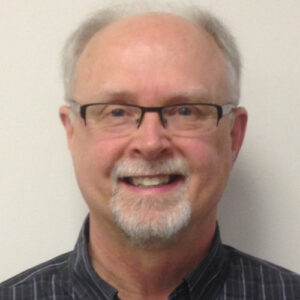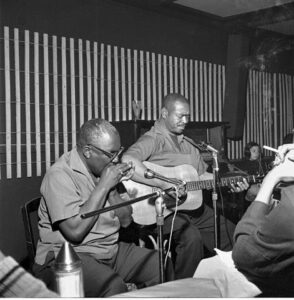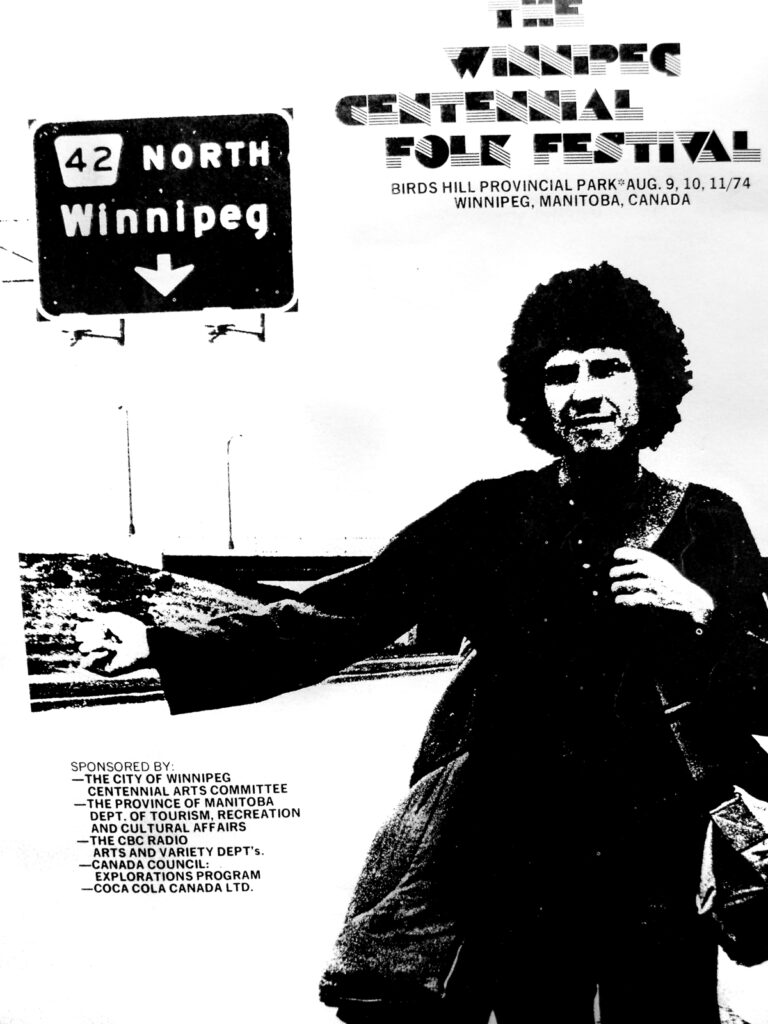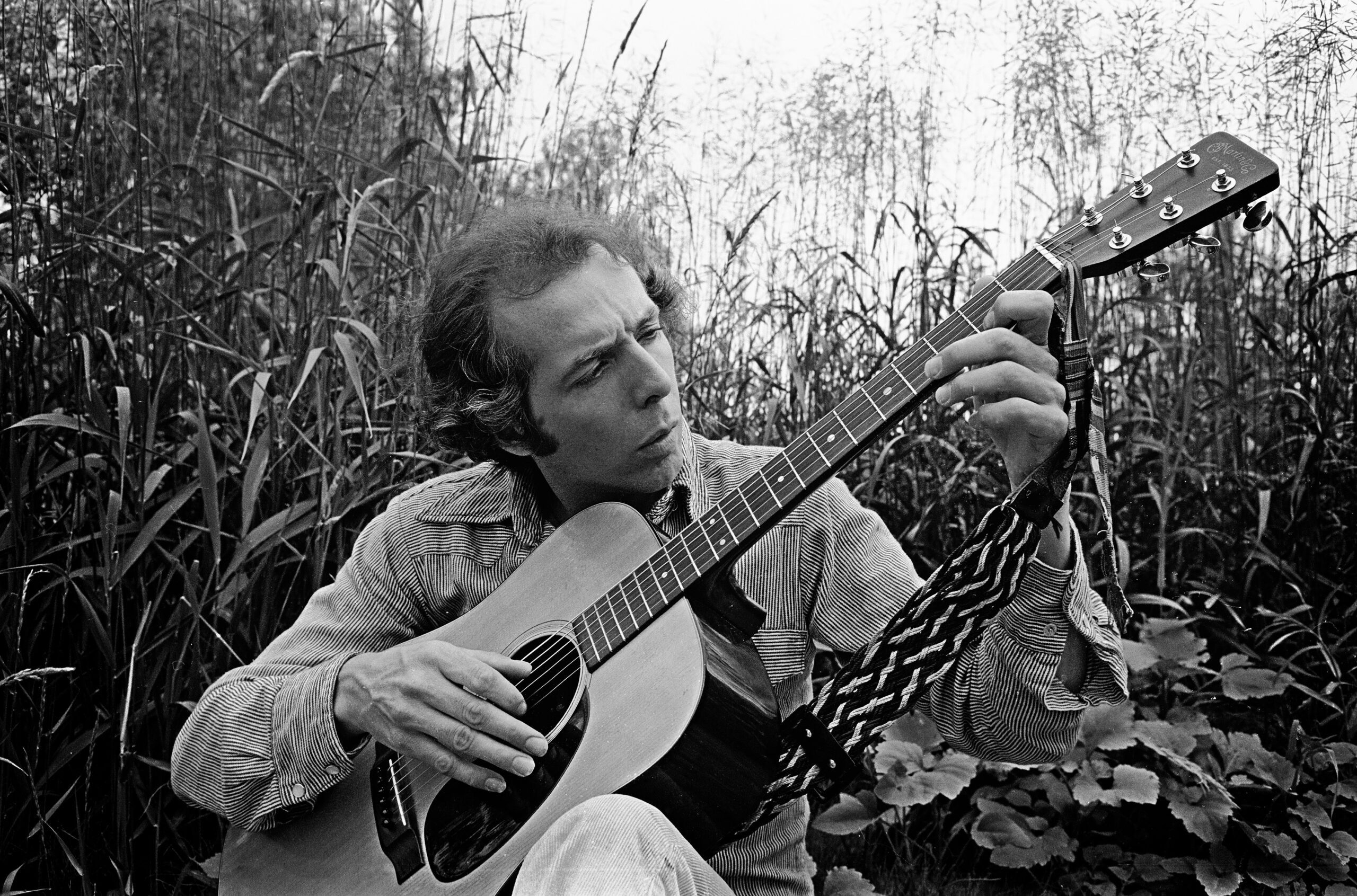As we celebrate Winnipeg’s 150th birthday, each month music historian and author John Einarson will share stories from our city’s rich and colourful music history. Enjoy.

Winnipeg City of Song
Folk music is, quite simply, music of the common people. Every cultural/ethnic group has its own folk music that, in some way, highlights the uniqueness of that cultural/ethnic group. The music is often related to national culture and can involve historical storytelling or topical events. Traditional folk music has been defined in several ways: as music transmitted orally, music with unknown composers, or music performed by custom over a long period of time.
Long before the Winnipeg Folk Festival put this city on the international folk and roots music map, folk music enjoyed a healthy following in coffeehouses, clubs, and church hall basements throughout the city.

Coffeehouses like the Wing’d Ox (St. Luke’s Anglican Church on Stradbrook Avenue), Java Shop (along a back lane kitty corner to the old Free Press building on Carlton Street), Establishment (on Kennedy Street close to where the Autumn Stone shop was located), Wyse Eye (at the downtown YWCA), Cro Magnon (at the corner of Notre Dame and Princess Street), the Latin Quarter (Home Street United Church), Deacon’s Dungeon (at St. John’s Church in the North End), Stop, This Is It (at Holy Trinity Anglican Church on Donald Street at Graham Avenue), The Fireplace Restaurant (on Pembina Highway), and West Broadway’s Ting Tea Room (later Hunter & Gunn barbershop) offered an eclectic fare, anything from folk to bluegrass, jazz, and blues, along with the occasional side of poetry.
As local singer/songwriter Bobby Stahr (aka Bob Purvis) recalls, “My favourite place to play was The Latin Quarter in the basement of Home Street United Church. It was the folk mecca in Winnipeg. It was the only coffeehouse open on Sundays. You had a good audience who came to listen.”
Any mention of coffeehouse performers in Winnipeg during the ‘60s and ‘70s always elicits one name: Jim Donahue. He was the kingpin on the local folk music scene. “Jim set the standard for every other folk performer in town,” notes younger brother, musician/record producer Dan Donahue. “He sang well, played well and engaged people in a way that others didn’t.”
The premier local coffeehouse in the early 1960s was the Fourth Dimension or 4D located at 2000 Pembina Highway at University Crescent beside the Pembina Drive-in Theatre in south Winnipeg. Formerly 1950s supper club Jack’s Place, in 1960 it was converted into a coffeehouse, part of a chain of three Fourth Dimensions coffeehouses, the other two in Fort William (Thunder Bay) and Regina. The 4D was an oasis for like-minded souls with a penchant for a more cerebral musical experience. Inside, a dark bohemian motif (black walls lined with snow fence and dim lighting) created a cool boho enclave. Charlie Clement (later the owner of Tubby’s Pizza on Stafford Street) from Regina was installed as manager. Many of the top folk artists of the day appeared at Winnipeg’s 4D along with up and comers like Jesse Colin Young (later in The Youngbloods), Don McLean (long before “American Pie” made him famous), Stephen Stills (with New York folk quintet The Company), Joni Mitchell, as well as our own Neil Young.

“It was a place where you could meet other people from other parts of the city who, like you, were caught up in this particular musical movement,” notes 4D performer Len Udow. “The coffee wasn’t the attraction like a Starbucks today.”
The Ting Tea Room, located at 595 Broadway Avenue just west of Osborne Street, opened its doors in February 1971 offering eclectic folk music fare. The coffeehouse served coffee and tea as well as containing a full-service restaurant. The club also boasted a meditation room and a section where various locally-made arts and crafts were sold.
Opened in 1987, The West End Cultural Centre was the brainchild of Winnipeg Folk Festival founder Mitch Podolak. Located in the refurbished Portuguese Hall (previously housing several different church congregations stretching back to 1896) at 586 Ellice Avenue at Sherbrook Street in downtown Winnipeg, it quickly became a major concert venue for folk and roots artists both locally and from across Canada.
Since 1974, the annual Winnipeg Folk Festival has become one of North America’s leading folk and roots music events drawing over 50,000 people to Bird’s Hill Park just north of Winnipeg each July. Notes original visionary Mitch Podolak, “There is a whole generation of musicians, a couple of generations, in fact, who were entirely inspired by the Winnipeg Folk Festival.” This year the festival celebrates 50 years of music and fun.


